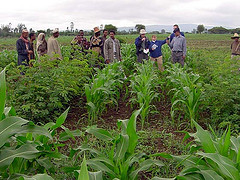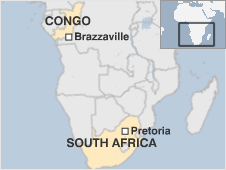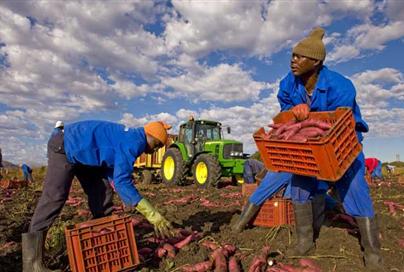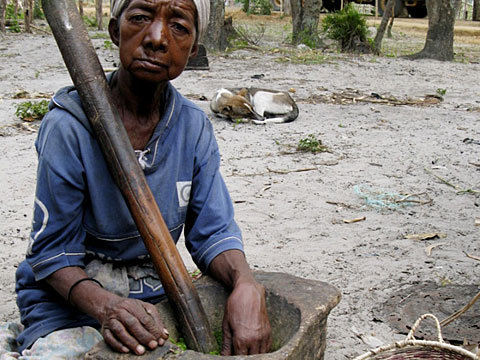(Secure) Food for thought
- BBC
- 23 October 2009
Interview with Kieran Forde, an Irishman who works in Saudi Arabia for the Tabuk Agriculture Company (TADCO), which will be shifting food production for the Saudi market to Egypt

Interview with Kieran Forde, an Irishman who works in Saudi Arabia for the Tabuk Agriculture Company (TADCO), which will be shifting food production for the Saudi market to Egypt

An audio recording of the panel on global land acquisition, held on 22 October 2009 at the European Development Days 2009 in Stockholm, is available online.

Ernest Corea, a former senior consultant with the Washington-based Consultative Group on International Agricultural Research (CGIAR), told IPS the surrender of nationally-owned farm land and land rights to foreign interests - whether individuals, the corporate sector or governments - amounts to an erosion of sovereignty.

The Congolese government said it had signed similar agreements with China, Brazil and Israel.

"The idea is to show that the Arabs may invest in agriculture in Brazil without the need for purchasing land," says Eduardo Sampaio

Black Earth Farming Ltd., which controls an area of Russian farmland four times the size of New York City, plans to start exporting grain and begin forward sales with traders and fertilizer suppliers.

Officials in Ethiopia hope that the investment can help improve agriculture, replacing ox-and-plough with tractors, but some are concerned about whether the deals benefit the lessors.

Japan is leading an international effort to define a new set of 'investor principles' to govern such deals. These efforts are gaining support but will need to involve investors, many of whom are far removed from the donors, global banks and multinational corporations that are used to working with such initiatives.

There has been criticism of the deal in France, pointing out that Denis Sassou-Nguesso, the Congolese president, is widely considered to be severely corrupt. But de Jager believes such attacks are motivated by a desire to protect French [farm export] interests against competition.

Peter Ndoro spoke to Dr Yao Graham, coordinator of Third World Network-Africa, a development agency, asking whether these deals really transfer technical expertise to locals.

"The motivation for South African farmers is simple," said Theo de Jager, Agri SA's deputy president, who helped negotiate the deal. "One in four farms must be redistributed in the next four or five years. So for new entrants into the sector and for those farmers who want to expand there is nowhere to go."

Can these deals benefit Africa? Have you been affected by one of these land deals? Should countries be leasing fertile land to foreign investors? Join a live BBC debate on 21 October 2009.